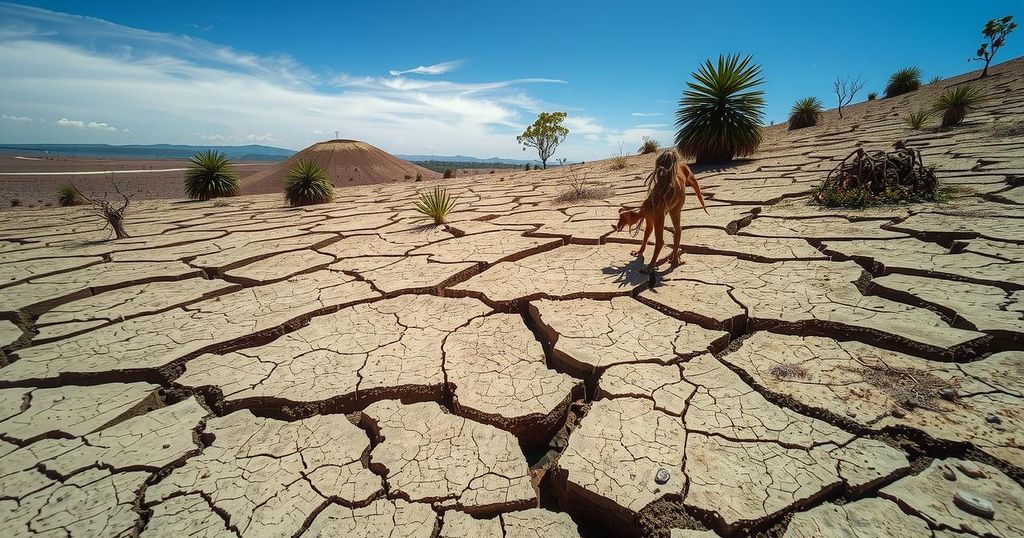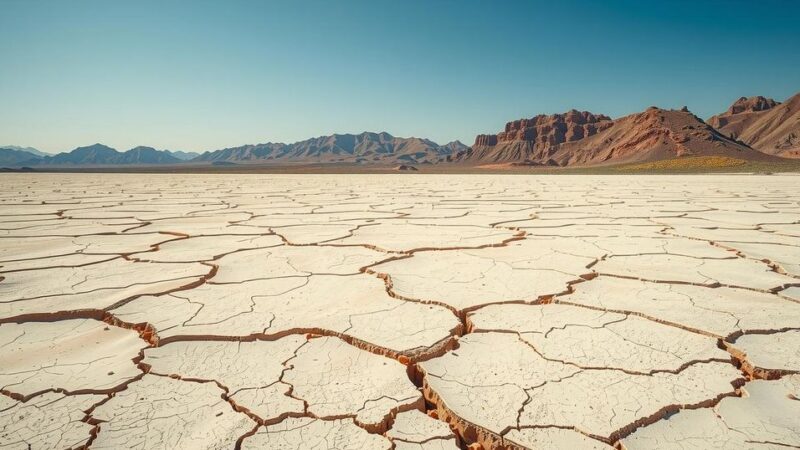Indigenous migrants in northern Colombia, particularly the Wayuu people, are battling severe climate impacts which result in food insecurity, displacement, and health threats. Traditional homes are vulnerable to flooding, and extreme weather patterns cause significant changes in living conditions. Efforts from non-profit organizations attempt to alleviate some challenges, but many families suffer due to a lack of state support, facing ongoing environmental and socio-economic difficulties.
In northern Colombia, the Wayuu people, particularly those displaced from Venezuela, are grappling with increasing climate impacts, including severe droughts and flooding. These issues have led to food insecurity and displacement, forcing families to live in makeshift homes constructed from scavenged materials. Nelly Mengual, a 47-year-old resident of an informal settlement near Riohacha, described how flooding destroyed her home, demonstrating the severe conditions faced by the community.
The Wayuu, Colombia’s largest Indigenous group, are particularly vulnerable to climate change, which is resulting in prolonged droughts followed by intense rainfall events. Climate scientists predict these patterns will worsen as global warming progresses. These phenomena not only damage homes but deplete water resources, disrupt agriculture, and increase risks of waterborne diseases. Consequently, many Wayuu families are compelled to migrate to urban areas, intensifying the strain on these environments.
Ingrid Gonzalez, a community leader, highlighted the vulnerability of traditional Wayuu homes during the rainy season, with mud houses being highly susceptible to flooding. Samuel Lanao, head of Corpoguajira, indicated that extreme floods have ravaged homes, crops, and livestock, resulting in increased instances of vector-borne diseases, like dengue fever, in Indigenous populations.
Camilo Martinez, of the Danish Refugee Council, has noted distinct changes in climatic conditions over the years, including altering rainfall patterns and temperatures in La Guajira. Supporting scientific evidence from Colombia’s environmental studies showcases rising temperatures, droughts, and increased desertification, which have become more pronounced in recent years, presenting significant challenges for the Wayuu.
The heat experienced in recent times has proven particularly detrimental, affecting both the well-being of the residents and their livestock. Many Wayuu families continue their semi-nomadic lifestyle, but access to clean water remains a significant challenge, often relying on expensive, contaminated water deliveries or unreliable rainwater collection.
Non-governmental organizations are stepping in to assist the Wayuu, as government support is limited. Anibal Mercado, a Wayuu leader, expressed the intensified challenges faced by migrant populations due to climate change, stemming from governmental neglect and ineffective policies, which undermines their self-sustaining traditional practices.
Despite these hardships, the resilience of the Wayuu community is evident, as they continue to reconstruct their lives. Laura Pushaina, a 28-year-old woman, shared how she hopes to return to her homeland in Venezuela but has found that the current conditions in her settlement lack essential infrastructure. Recent floods have made life even more challenging, yet the community persists in weaving their traditional crafts as a means of survival and hope for a better future.
The Wayuu people in northern Colombia are facing escalating challenges due to climate change, including severe droughts and floods that result in food insecurity, displacement, and health risks. Their reliance on traditional lifestyles, coupled with the lack of infrastructure and governmental support, further complicates their situation. Despite these adversities, community members continue to show remarkable resilience and hope for eventual improvements in their environmental and socio-economic conditions.
Original Source: www.independent.co.uk






